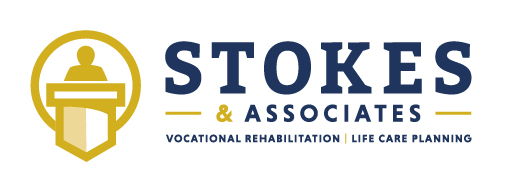How do Transferable Skills Influence a Vocational Assessment?
When determining factors related to post-injury earning capacity, the individual’s vocational profile is analyzed in order to assess viable post-injury employment options. A vocational profile includes key elements such as age, level of educational attainment, work history, vocational test results, transferable skills, and residual limitations. Transferable skills are those skills that are typically acquired through education, training, work experience and leisure activities, and can be generalized to alternate types of jobs.
Transferability is most probable and meaningful among jobs in which:
The same or lesser degree of skill is required;
The same or similar tools and machines are used;
The same or similar raw materials, products, processes, or services are involved.
Transferable skills vary regarding how cleanly applicable they are among jobs. In general, the greater the degree of acquired work skills, the less difficulty an individual should experience in transferring skills into other jobs.
At Stokes & Associates, we use vocational inventories along with conducting a transferable skills analysis to identify those transferable skills that can assist with post-injury career exploration and job search. Appropriately identifying one’s transferable skills can allow for an easier adjustment and transition back into the labor market post-injury.
We offer complimentary consultations concerning "hypothetical matters." To strategize with one of our experts at Stokes & Associates, please call David Barrett at 504-454-5009 or email dbarrett@stokes-associates.com.
Larry S. Stokes, Ph.D.
Aaron Wolfson, Ph.D.
Todd Capielano, M.Ed., LRC, CRC, LPC, CLCP
Lacy Sapp, MHS, CRC, LPC, LRC, CLCP
